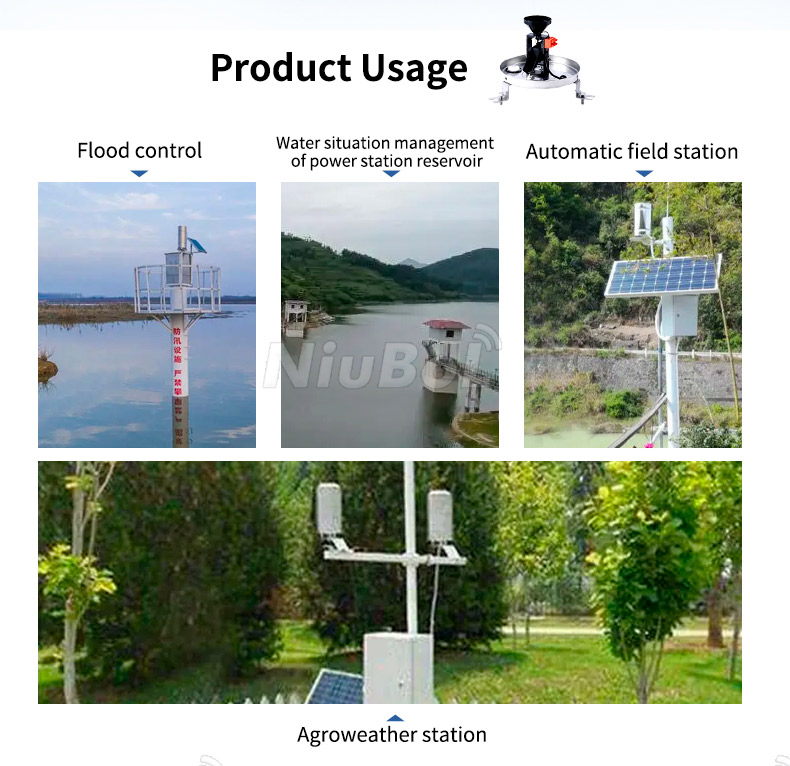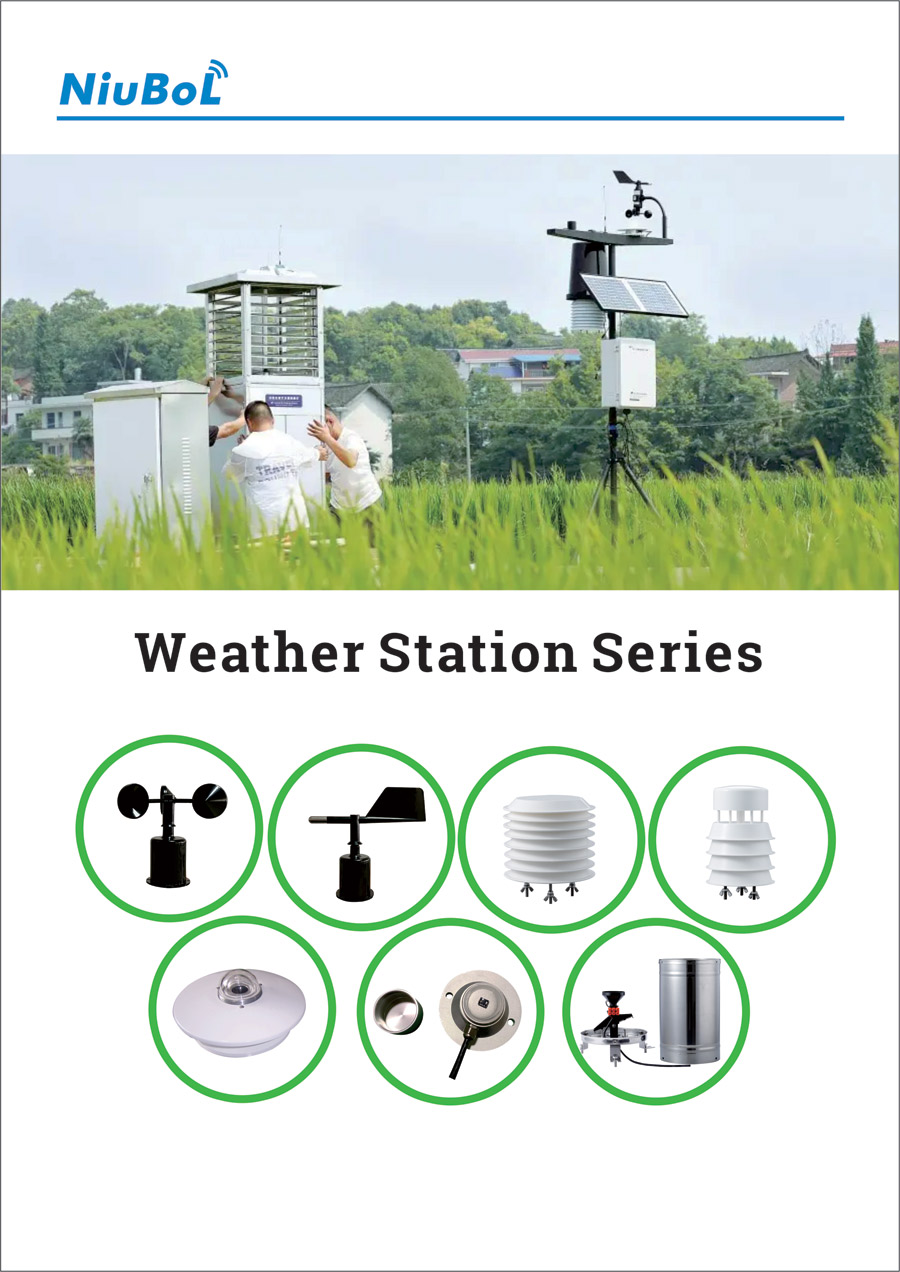

— Blogs —
—Products—
 Consumer hotline +8618073152920
Consumer hotline +8618073152920 WhatsApp:+8615367865107
Address:Room 102, District D, Houhu Industrial Park, Yuelu District, Changsha City, Hunan Province, China
Product knowledge
Time:2023-08-11 20:40:04 Popularity:2092
We all know that crop growth for the meteorological environment has strict requirements, temperature, light, humidity and other meteorological environment will have an impact on the growth of crops, agro-meteorological station to achieve real-time online monitoring of meteorological factors affecting the growth of crops, the monitoring results are directly displayed on the big screen, can be viewed by the user.
Agricultural meteorological station can real-time monitoring and recording of air temperature, relative humidity, rainfall, wind speed, wind direction, light intensity and other meteorological factors, which has a guiding significance in guiding agricultural production and promoting crop income.
An agrometeorological station is a facility specially designed and established to observe, record, analyse and forecast agrometeorological elements in order to meet the needs of agricultural production for meteorological information. Its main roles are as follows:
Agricultural production scheduling: Through real-time monitoring and recording of meteorological data, agricultural weather stations provide important meteorological information to help farmers rationally arrange farming activities, such as planting, irrigation, fertiliser application, pest control, etc., so as to improve crop yields and quality.

Disaster warning: Agro-meteorological stations can monitor weather changes in real time, predict the probability of natural disasters (e.g. heavy rainfall, drought, frost, etc.), and release timely warning information to remind farmers to take appropriate protective measures to reduce crop losses.
Resource management: The agrometeorological station can provide information on soil moisture, evaporation and emanation, etc., to help farmers carry out reasonable water resource management, irrigation planning and water conservation measures, and improve the efficiency of water resource utilisation.
Decision-making support: Agrometeorological stations gather a large amount of meteorological data, and after statistical analysis and model calculation, they can provide scientific basis for agricultural decision-making, such as selecting suitable crop varieties, determining the best sowing period, and formulating reasonable fertilisation programmes.
In the future, with the continuous progress of technology and the advancement of agricultural intelligence, the development direction of agricultural weather stations mainly includes:
Precision monitoring: through the application of more advanced sensor technology and data acquisition systems, to achieve precise monitoring of the micro-environment of farmland and crop growth status, and to provide more accurate meteorological information.
Prediction and early warning: using artificial intelligence, big data analysis and other technical means to improve the prediction ability of agricultural weather stations, achieve more accurate and timely disaster warning and weather forecasting, and help farmers make good agricultural decisions.
Data sharing and agricultural cloud platform: establish a sharing mechanism for agricultural meteorological data, integrate the data from each agricultural meteorological station, and combine with other agricultural information to build an agricultural cloud platform to provide comprehensive and timely agricultural meteorological services for farmers, agricultural research institutes and government departments.

Agricultural intelligent application: Combining agricultural Internet of Things, drones, satellite remote sensing and other technical means to achieve the integration of agricultural meteorology and agricultural production, promote the intelligent development of agriculture, improve crop yield and quality, and reduce resource waste and environmental pollution.
With the continuous development of agricultural refinement, the demand for specialised climate monitoring is also becoming more and more important, the use of agricultural weather stations to monitor the agricultural production environment to meet the demand for environmental monitoring, agricultural weather stations in agricultural production bases, family farms, agricultural parks and other places to promote the use of agricultural production is conducive to the protection of agricultural safety production, and the promotion of the development of quality agriculture. In short, the future of agricultural weather stations will be more intelligent, accurate, to provide better support for agricultural production, and help the sustainable development of agriculture.
Prev:Solar Radiation Sensors Play an Important Role in the Meteorological and Energy Sectors
Next:Installation of Agro-meteorological stations in cotton cultivation values and roles
Related recommendations
Sensors & Weather Stations Catalog
Agriculture Sensors and Weather Stations Catalog-NiuBoL.pdf
Weather Stations Catalog-NiuBoL.pdf
Related products
 Combined air temperature and relative humidity sensor
Combined air temperature and relative humidity sensor Soil Moisture Temperature sensor for irrigation
Soil Moisture Temperature sensor for irrigation Soil pH sensor RS485 soil Testing instrument soil ph meter for agriculture
Soil pH sensor RS485 soil Testing instrument soil ph meter for agriculture Wind Speed sensor Output Modbus/RS485/Analog/0-5V/4-20mA
Wind Speed sensor Output Modbus/RS485/Analog/0-5V/4-20mA Tipping bucket rain gauge for weather monitoring auto rainfall sensor RS485/Outdoor/stainless steel
Tipping bucket rain gauge for weather monitoring auto rainfall sensor RS485/Outdoor/stainless steel Pyranometer Solar Radiation Sensor 4-20mA/RS485
Pyranometer Solar Radiation Sensor 4-20mA/RS485
Screenshot, WhatsApp to identify the QR code
WhatsApp number:+8615367865107
(Click on WhatsApp to copy and add friends)
